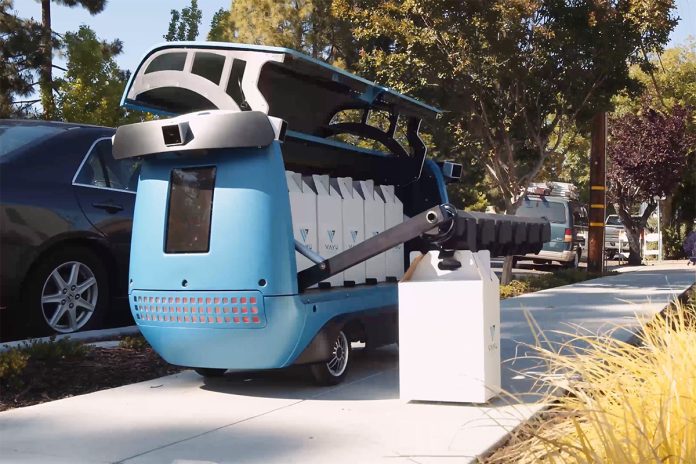Vayu Robotics has introduced a new player to the autonomous delivery robot market: Vayu One. This delivery robot departs from traditional reliance on LiDAR sensors and instead uses a cost-effective vision system enhanced by artificial intelligence (AI) to navigate city streets and deliver goods.
Innovative approach to autonomous navigation
Vayu Robotics, a Californian startup founded in 2021, has taken a unique approach to autonomous delivery. Unlike other companies such as Amazon, FedEx, Walmart, and Uber Eats, which have experimented with various delivery robot technologies, Vayu Robotics focuses on a vision system paired with AI for navigation. This method allows the robot to operate without pre-mapping routes, reducing the need for expensive sensor suites.
The company’s Vayu Sense technology, developed in 2022, is central to this innovation. Vayu Sense combines dense, low-cost CMOS image sensors with advanced computational imaging and machine learning techniques. This technology provides high-resolution depth perception and object detection capabilities, outperforming traditional RGB cameras and even LiDAR in certain conditions. The result is a cost-effective, high-resolution robotic vision system that can function effectively in challenging environments.
The AI foundation: Vayu Drive
Complementing the Vayu Sense vision system is the Vayu Drive, a proprietary AI model for robotics autonomy. This AI foundation is trained using both simulated and real-world data, eliminating the need for high-definition maps, localization technology, or LiDAR. The Vayu Drive operates on a neural network basis, similar to large language models (LLMs), processing multimodal inputs such as image tokens from cameras, instruction tokens, and route tokens for navigation.
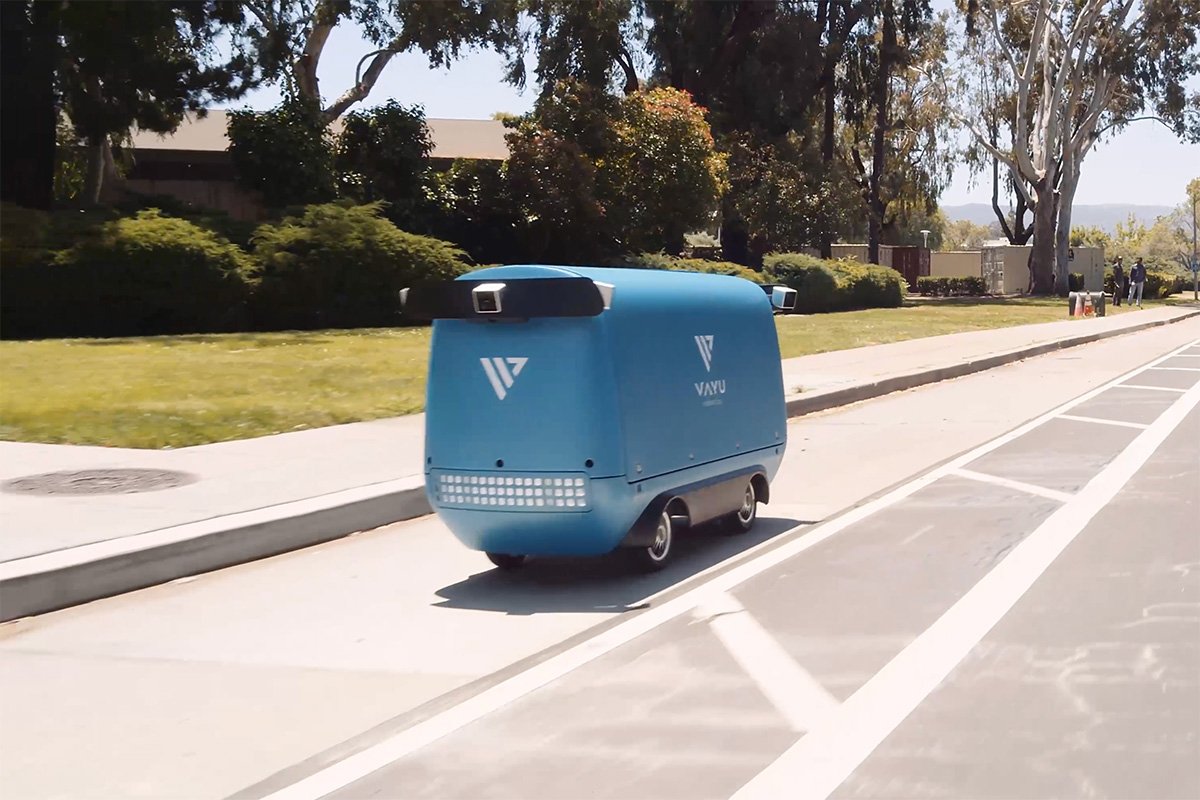
Unlike other LLMs, Vayu Drive maintains a state that builds over time and updates with each new input frame, allowing for large context windows without the typical slow-down associated with extensive contexts. Designed to run efficiently on the edge, Vayu Drive processes data at 10 frames per second, ensuring swift and accurate navigation.
Launch and specifications of Vayu One
Emerging from stealth in October 2023 with $12.7 million in seed funding from backers including Lockheed Martin, Vayu Robotics has now launched Vayu One, its first delivery robot. This robot is designed to operate on various terrains, including roads, bike lanes, sidewalks, and inside stores. Its compact dimensions – 3.3 feet in height, 5.9 feet in length, and 2.2 feet in width – enable it to navigate through traffic smoothly while delivering goods at speeds up to 20 mph (32 km/h).
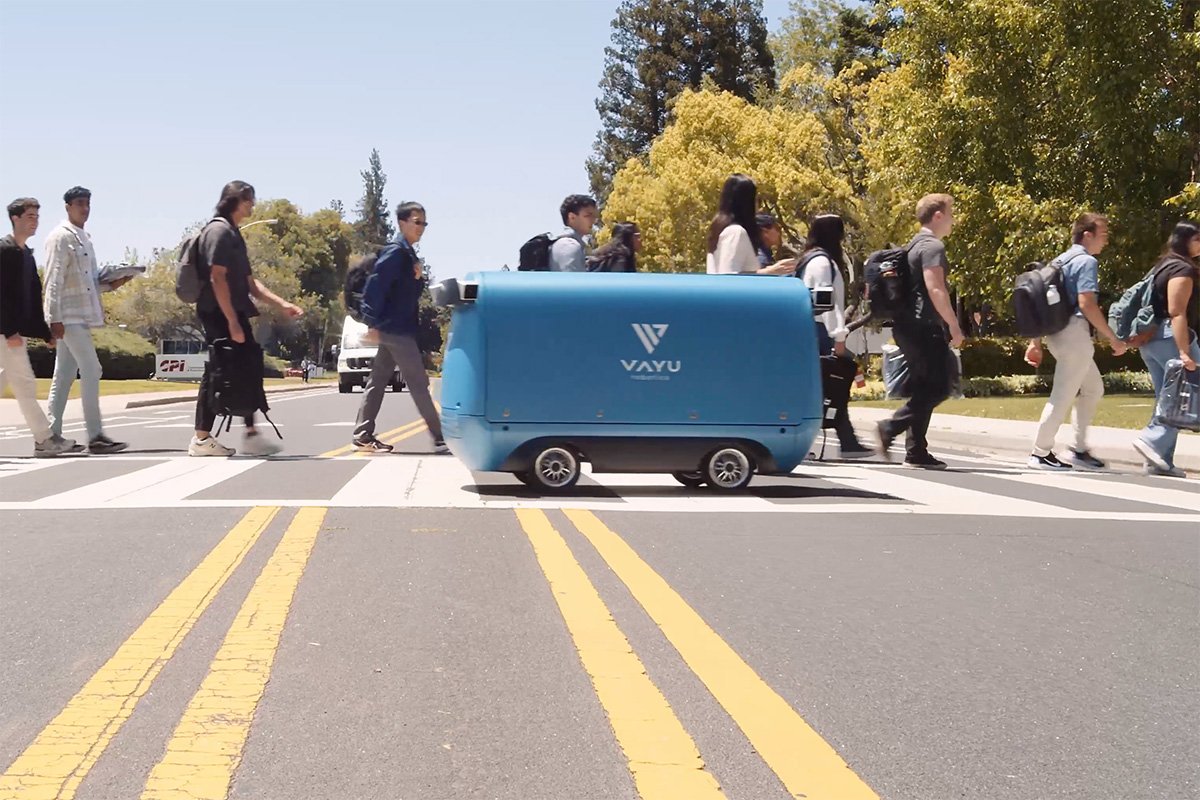
The One features a battery pack that offers a range of 60 to 70 miles (up to 112.6 km) per charge, making it suitable for urban deliveries. It can carry up to 100 pounds (45 kg) of goods in its storage compartment, with potential adjustments increasing this capacity to 200 pounds. Upon reaching its destination, the One can mount sidewalks or driveways, open its side door, and use its robotic arm to deliver the package.
Commercial deployment and future prospects
Currently, Vayu One is being tested by a large, unnamed e-commerce player, which plans to deploy 2,500 robots, starting in San Ramon, California, with plans to expand to other US cities. Vayu Robotics expects additional commercial customers to join the program and is also exploring opportunities to integrate its technologies into other robotic applications. The company is collaborating with a leading global robotics manufacturer to replace LiDAR sensors with Vayu’s sensing technology.
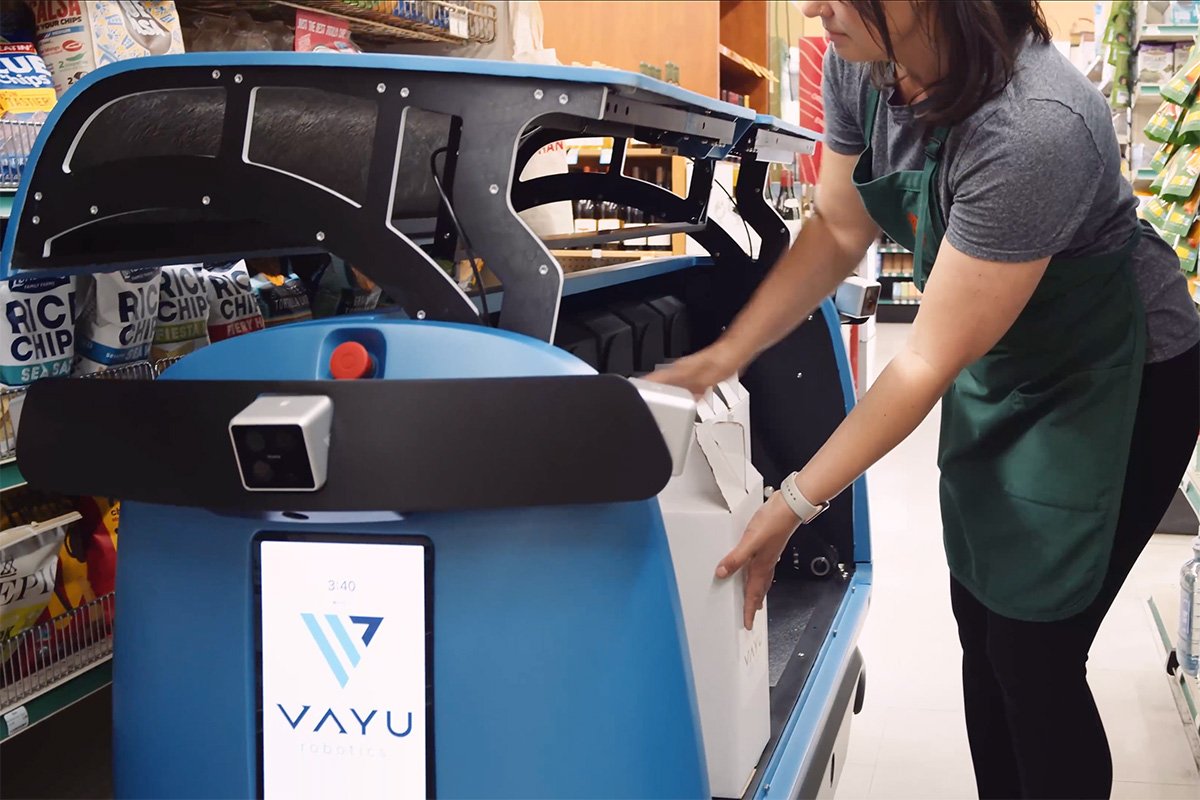
“Our software is robot form factor agnostic, and we have already deployed it across several wheeled form factors. In the near future, Vayu’s software technology will enable the movement of quadrupedal and bipedal robots, allowing us to expand into those markets as well,” said Anand Gopalan, co-founder of Vayu Robotics.
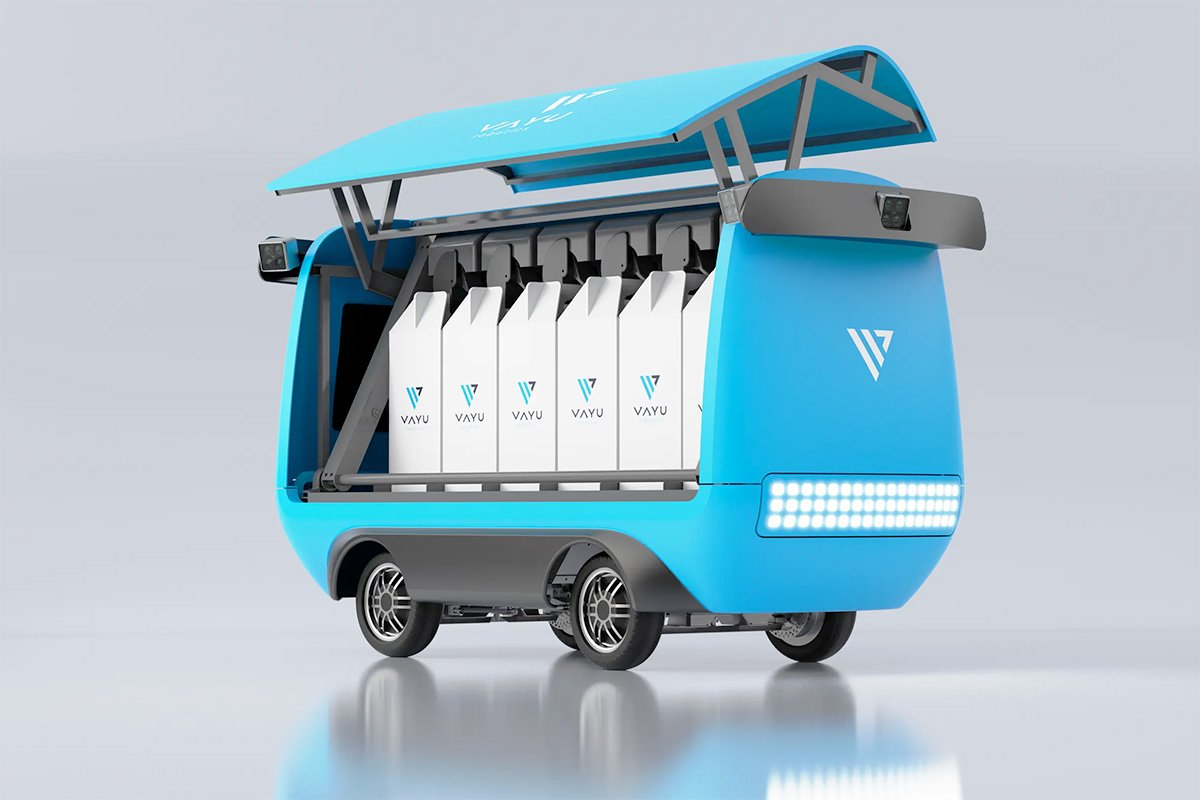
Source: Vayu Robotics

